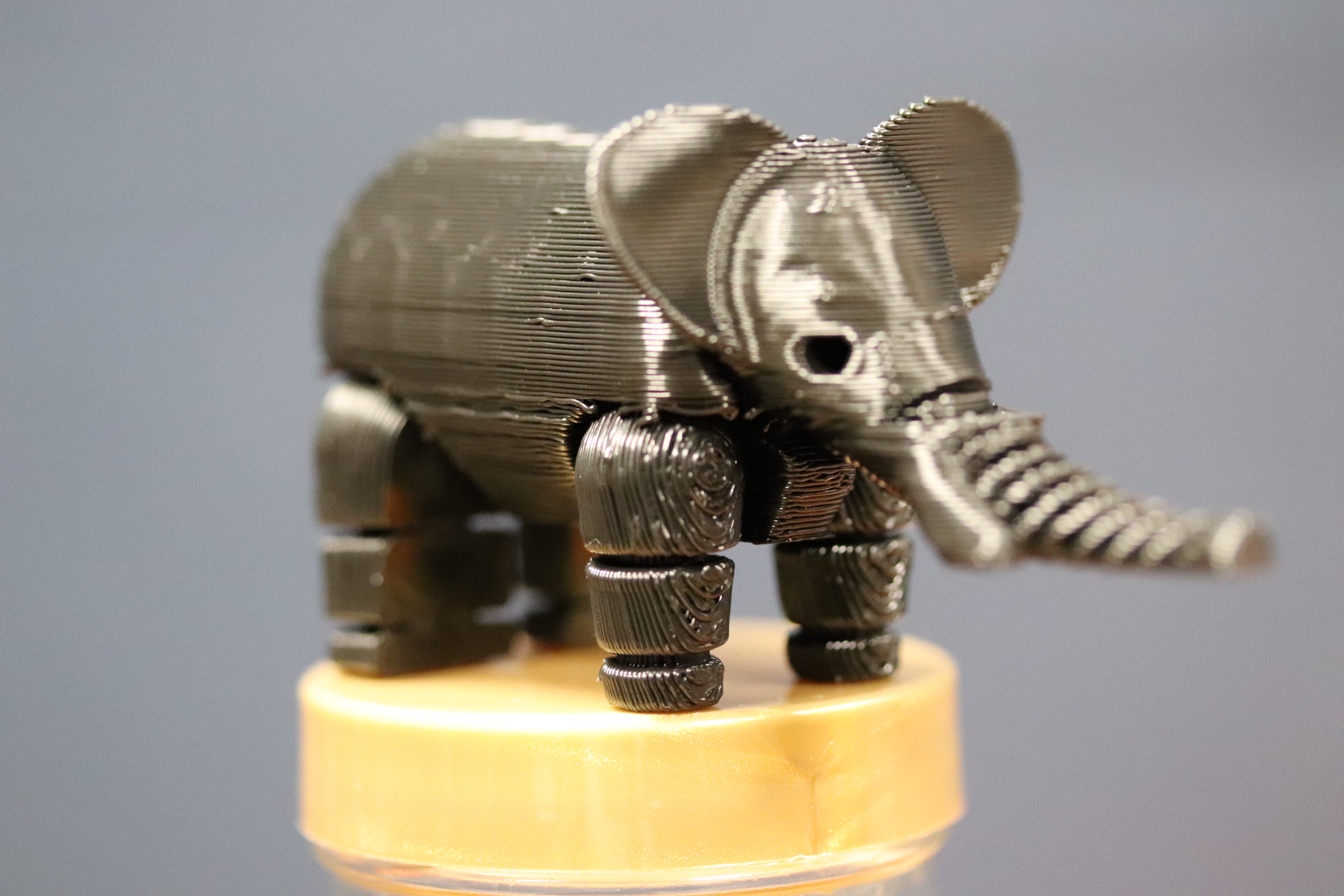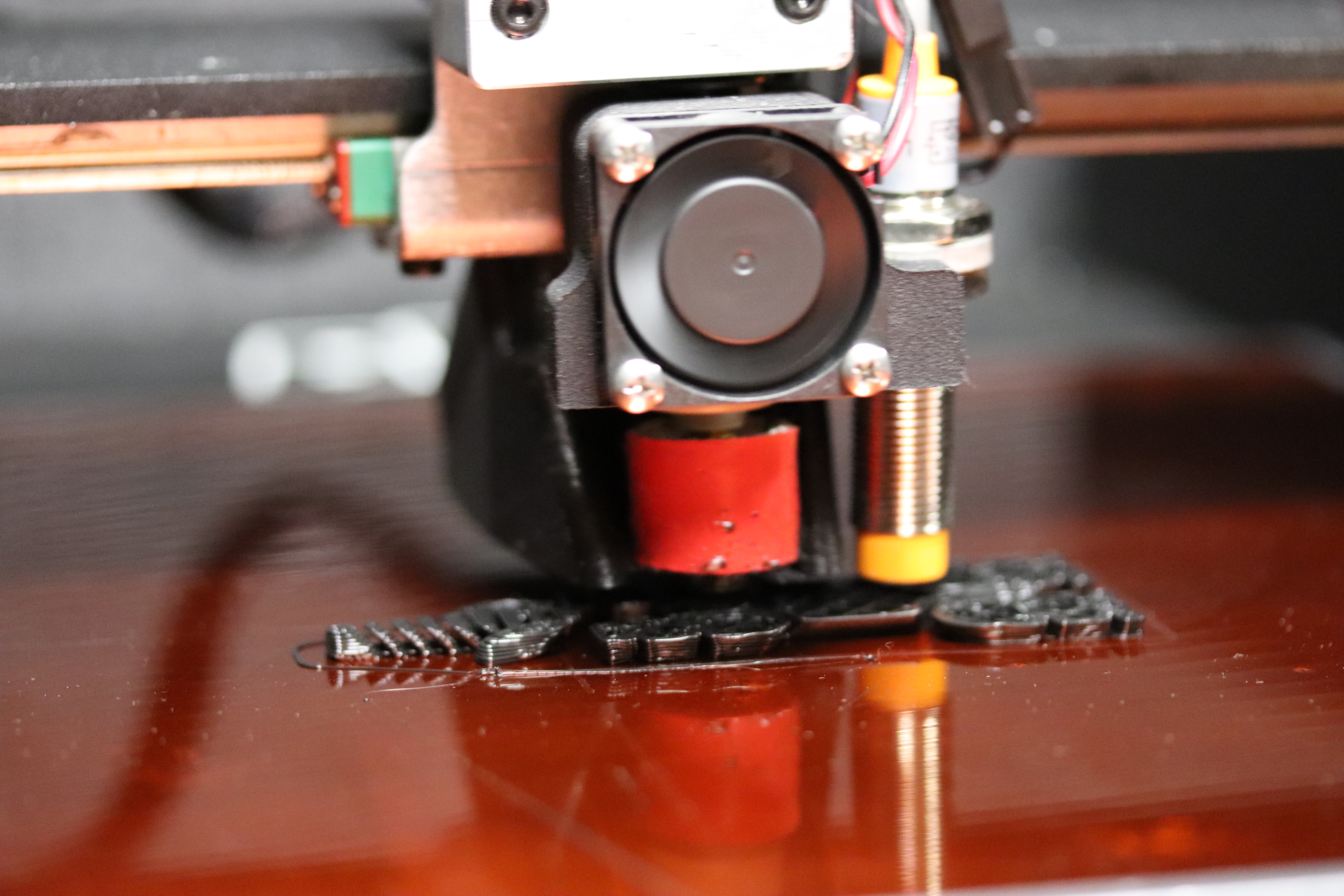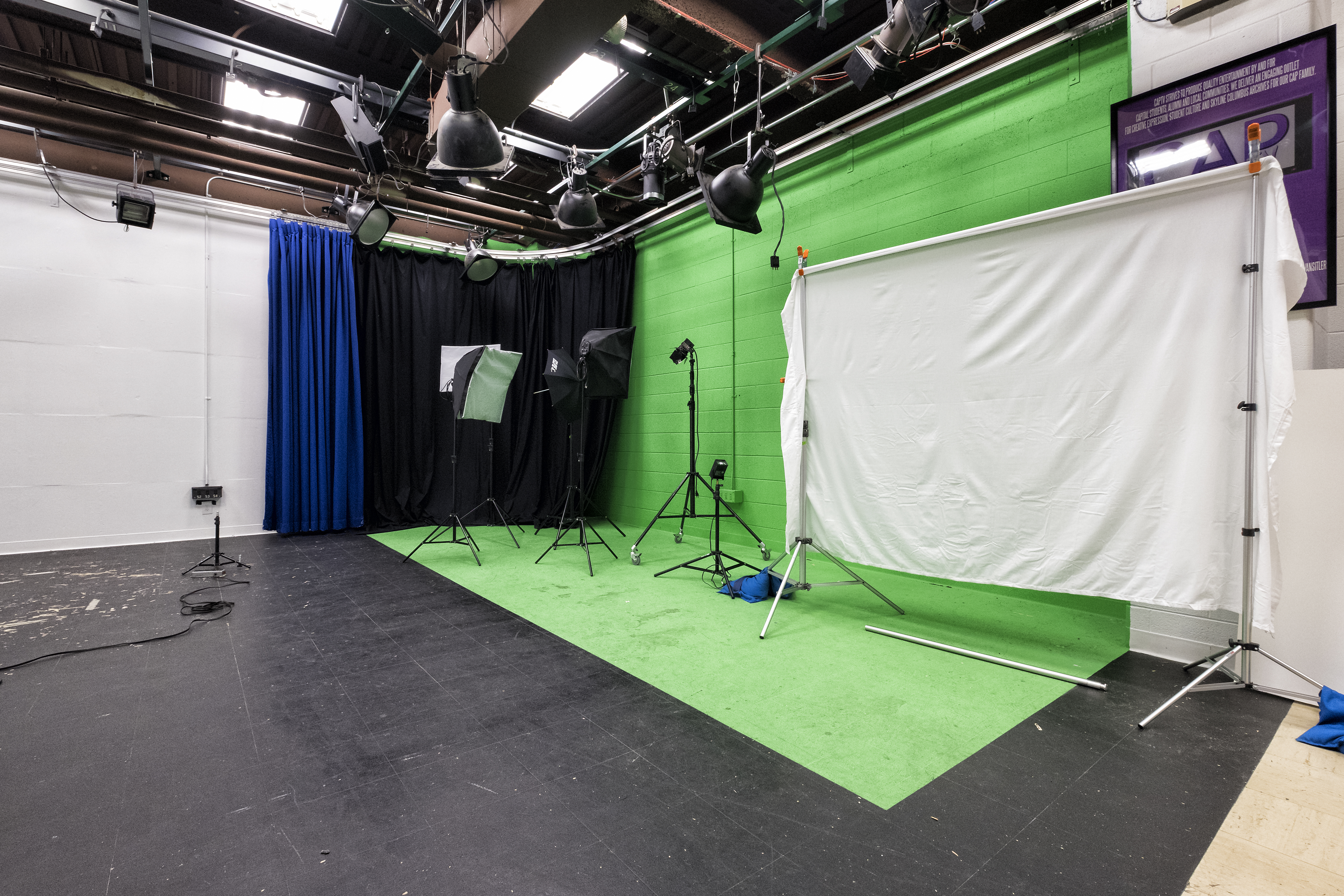After moving CapTV and WXCU to the Convergent Media Center, Capital has found purpose for the now-open television studio, which resides in the basement of the library, and the previous WXCU radio station, located in the basement of Huber-Spielman.
Television Studio – Maker’s Space
 In just his second year at Capital, William Ball took advantage of the vacant television studio’s equipment room and turned it into something outside of the box.
In just his second year at Capital, William Ball took advantage of the vacant television studio’s equipment room and turned it into something outside of the box.
“These spaces, they are generally called maker’s spaces, and they’ve kind of just sprung up all over,” Ball said. “They started out as community-based places where people would have access to tools and equipment to make things that they normally wouldn’t be able to at home.”
Where cameras, lighting, and sound equipment used to reside is now the home to two 3-D printers, as well as space for whatever else Ball and his students decide they need to construct their projects.
“I think the really exciting part of all this is the new digital fabrication tools, like the 3-D printers, the laser cutters, and electronics,” Ball said. “It’s something that Capital has not had prior to now. Normally you find these things in schools with an engineering department, but with a school like Capital, the idea is to have a situation where any student can come in and learn how to use these tools.”

The excitement for this new addition is not limited solely to staff members like Ball. It also has students engaged and eager to learn.
“It’s so broad that you can use it with any field,” Shelby Hughes, a junior psychology and philosophy major, said. “If I was to ever want to open a business, having these skills, I could then design and print my own products as detailed as I wanted all on my own.”
WXCU Radio Station – Foley Recording Space
In simple terms, electronic media and film professor Jim Higgins describes Foley recording as “the reproduction of all sounds and sound effects in a film.”
Whether it’s dialogue, characters walking on various surfaces, or something as simple as playing with a toy car, some actions create sounds that aren’t picked up by the camera. Because of this, they need to be manually reproduced, and taking over the previous WXCU radio station provides students a decent space to do just that.
The hopes are that the recording station can be upgraded and added to, ultimately turning it into a more professional Foley space and a potential draw for aspiring filmmakers.
“This [space] isn’t something we had a year ago,” Higgins said. “But because WXCU moved out, now I can be turn this space into something it wasn’t, which is amazing … it’s really one of [those] things where other schools don’t have it. Now that we have it, we can use it more, and classes can take advantage of the ability to create good audio.”
Further Improvements
While the additions of both the maker’s space and the Foley recording space are in motion and set to be in use, there are still other open areas on campus that have faculty and staff intrigued. The potential to add anything that advances the student’s education and provides skills that can be used in life post-undergrad is not only great for the students currently here, but it is also useful in recruiting students. It allows Capital to attract students with different areas of interest in ways never before possible.


